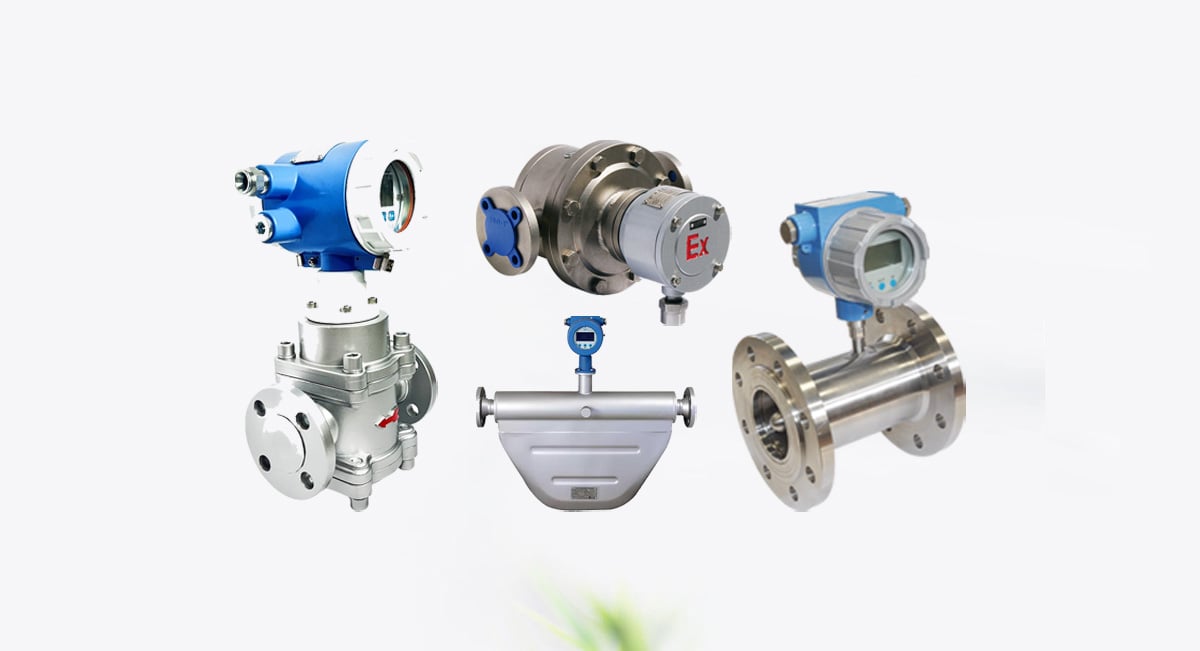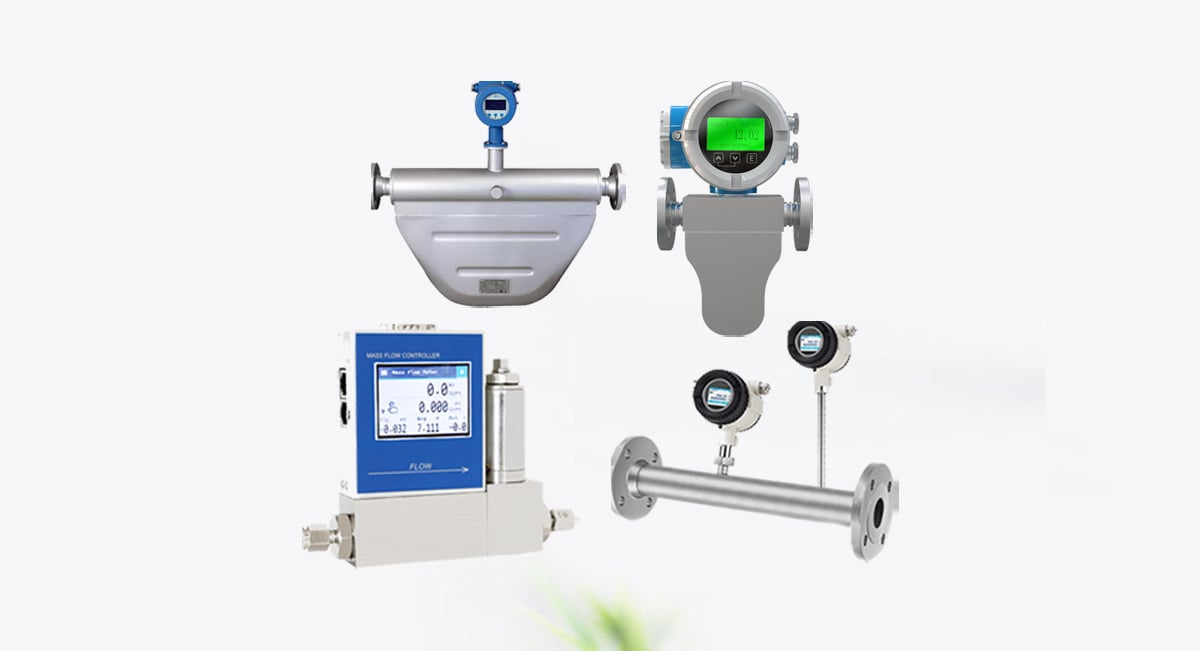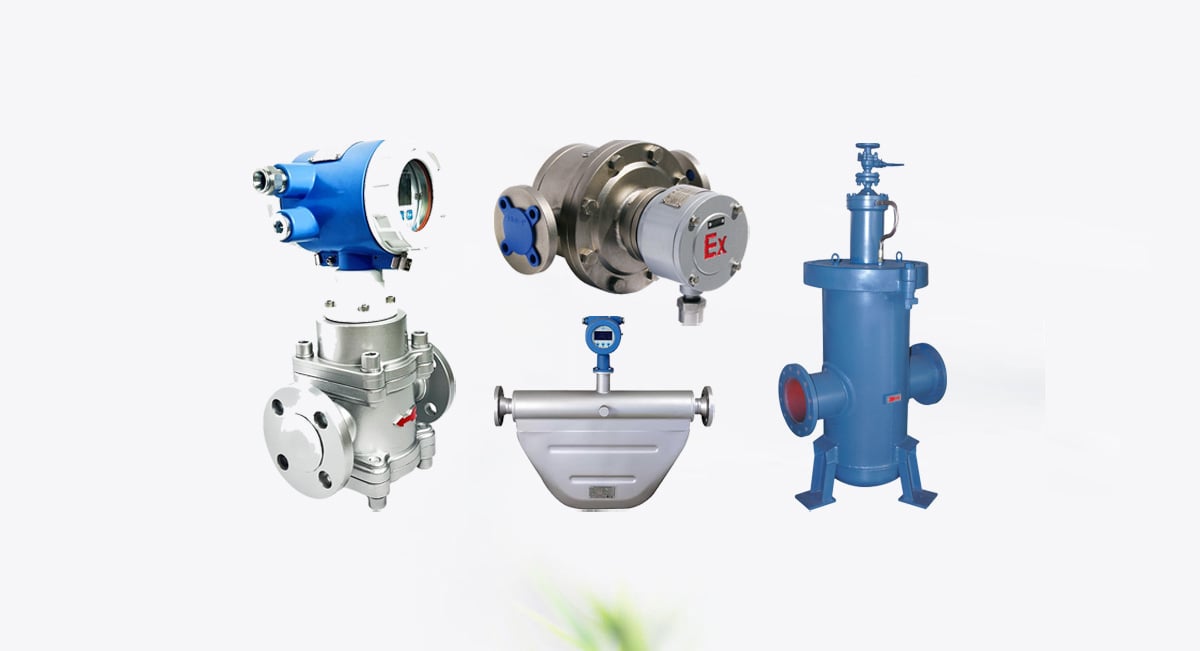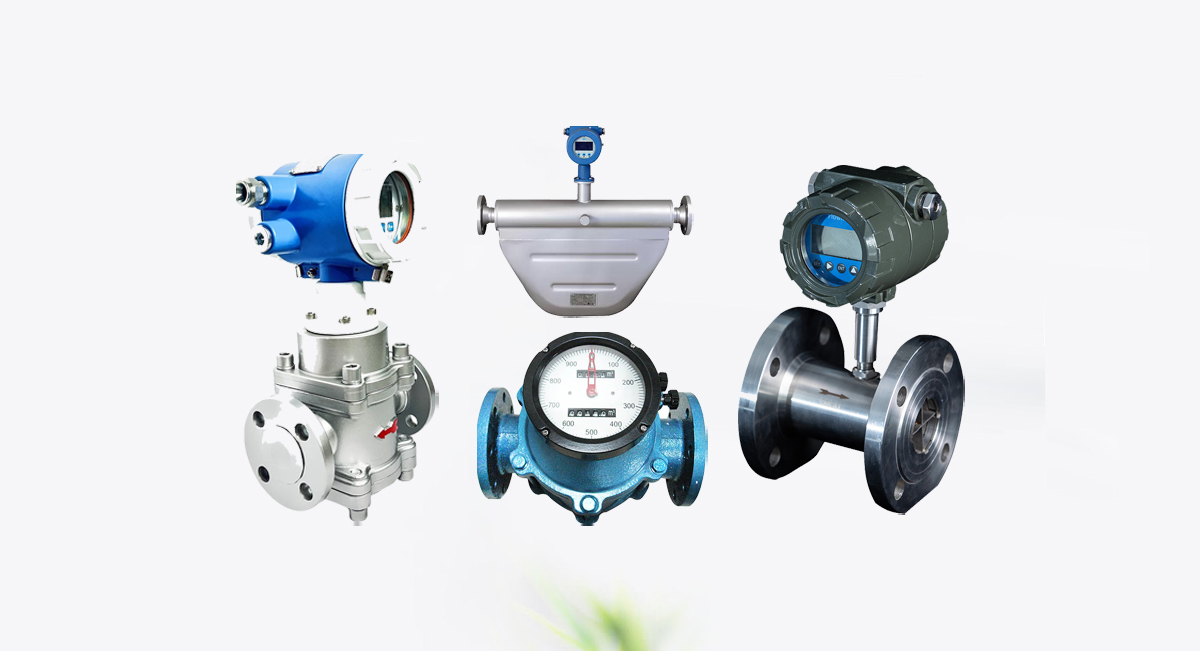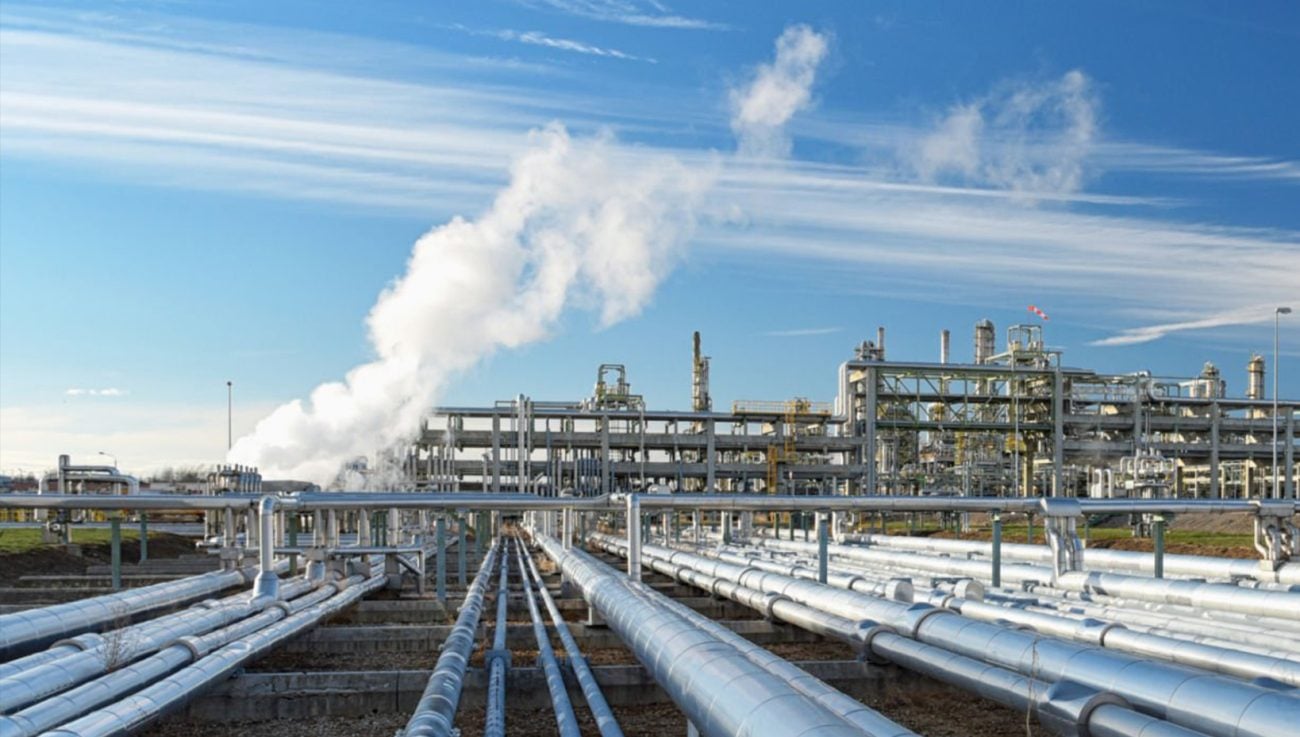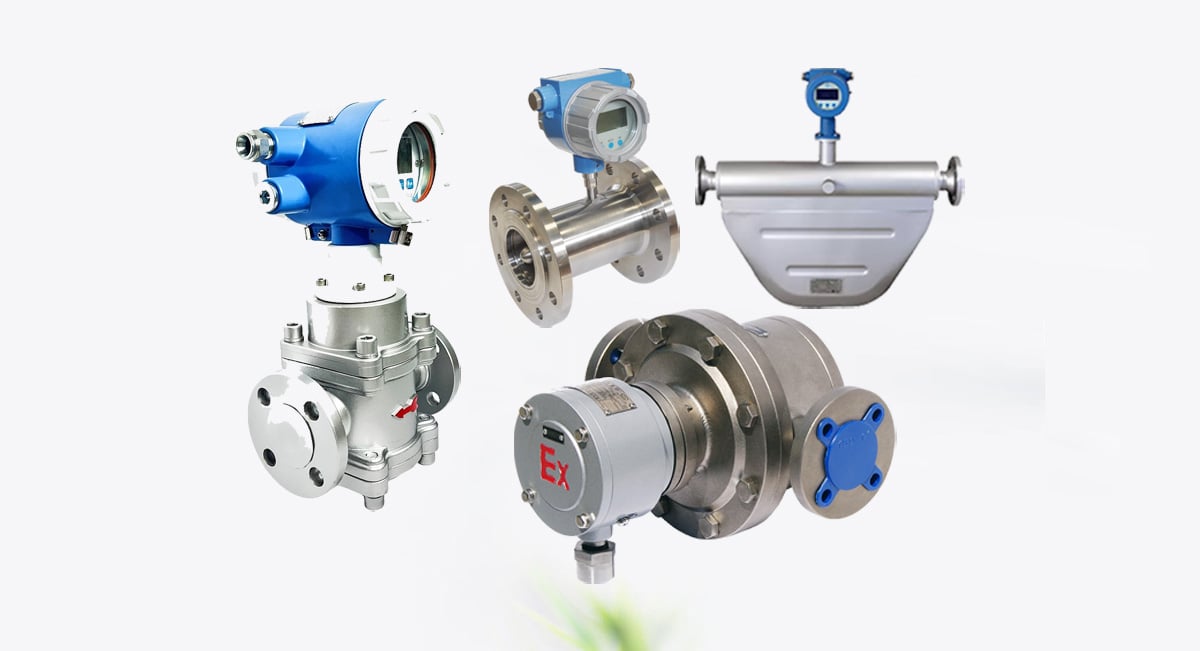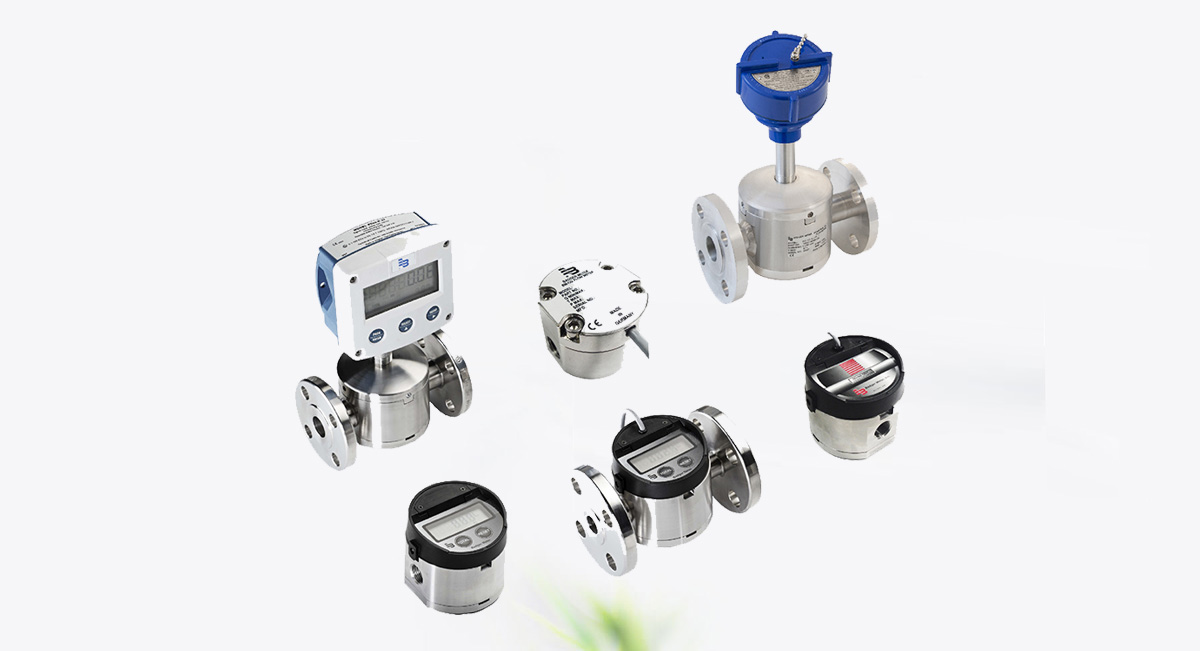What Is Fuel?
Fuel is any material that can store potential energy and release it through combustion or another chemical reaction to produce power. It is the essential energy source for engines, power plants, industrial furnaces, and heating systems. Fuels exist in various forms liquid, gaseous, and solid, and each type has different chemical properties, viscosity, and energy density, which influence how it is stored, transported, and measured.
Accurate fuel measurement is crucial because even a small error can lead to significant financial losses, process inefficiencies, or equipment malfunctions. That’s where caudalímetros de combustible entran en juego.
Índice
Types of Fuel
Liquid Fuels
Common liquid fuels include diesel, gasoline, kerosene, jet fuel, biodiesel, and heavy oil.
- Diesel: High viscosity, commonly used in industrial engines and generators. Measurement challenges include temperature-dependent density changes and potential air bubbles.
- Gasolina: Low viscosity and volatile, requiring precise sealing and vapor management in flow measurement.
- Kerosene and Jet Fuel: Require high accuracy and cleanliness; contamination can affect performance.
- Biodiesel: More viscous and may contain impurities that affect flow meter stability and calibration.
- Heavy Fuel Oil (HFO): Very viscous and often needs to be heated before measurement. This can complicate installation and calibration.
Gaseous Fuels
Typical gaseous fuels include natural gas, propane, butane, and hydrogen.
- Gas natural: Compressible, and its density changes significantly with temperature and pressure.
- Propane and Butane: Stored under pressure as liquids and converted to gas for combustion, requiring accurate flow control during phase change.
- Hydrogen: Extremely low molecular weight and high diffusivity, which makes measurement sensitive and requires specialized equipment.
Each fuel type poses unique challenges in measurement. Factors like viscosity, temperature, compressibility, and impurities all influence flow meter selection. Therefore, understanding fuel characteristics is the first step in choosing the right caudalímetro de combustible.
What Is a Fuel Flow Meter?
A caudalímetro de combustible is an instrument designed to measure the rate and total quantity of fuel flowing through a pipe or system. Depending on the measurement principle, it can measure flujo másico (the actual amount of fuel) or caudal volumétrico (the volume the fuel occupies).
Fuel flow meters are widely used in:
- Automotive and marine engine testing
- Power generation systems
- Industrial furnaces and burners
- Fuel distribution and transfer systems
- Aerospace and laboratory testing setups
The primary goal of a fuel flow meter is to provide accurate, repeatable measurements regardless of changes in temperature, pressure, or fuel type.
Best Recommended Fuel Flow Meters
Caudalímetros de desplazamiento positivo (PD)
Principio de funcionamiento: PD meters directly measure the fuel volume by trapping fixed quantities between internal moving parts.
Ventajas:
- Muy alta precisión (±0,1-0,5%)
- Ideal for measuring viscous liquids such as diesel, lubricants, and heavy oils
- Unaffected by changes in flow profile or viscosity Limitaciones:
- Not suitable for dirty fluids with large particles
- Requires regular maintenance due to mechanical wear
Lo mejor para: Diesel, heavy oil, and lubricating oil applications.
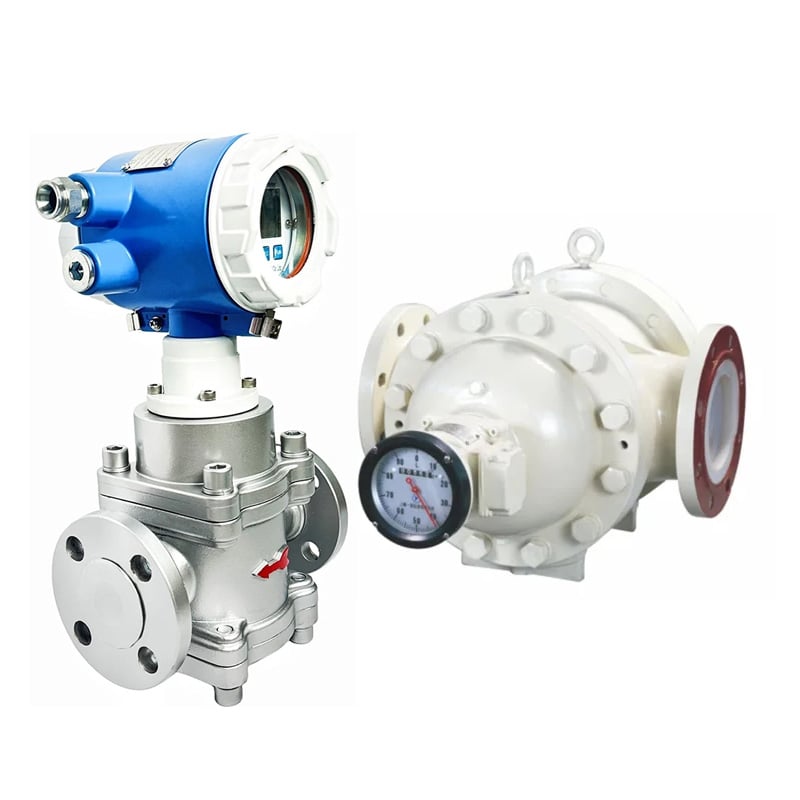
Medidor de caudal de desplazamiento positivo de dos rotores (MT-ABR)
- Alta precisión de hasta ±0,1 %, alta presión de proceso de hasta 110 bar (1595 psi)
- Vida útil extremadamente larga, mantenimiento económico reducido
- Estable en marcha con voz baja
- Buen rendimiento antiinterferencias y larga vida útil
- Gran aplicabilidad a los cambios de viscosidad

Caudalímetro de engranajes de desplazamiento positivo de bajo caudal MT-GF
- Diseñado para líquidos de bajo caudal a partir de 0,6 L/H
- Diseñado para la medición de fluidos de alta viscosidad, para manejar medios difíciles como jarabe, asfalto fundido y miel con una precisión fiable.
- Medición de alta precisión con una exactitud de hasta ±0,5%
- 150:1 wide turndown ratio
Caudalímetros Coriolis
Principio de funcionamiento: Measures mass flow directly by detecting the Coriolis force generated as fuel flows through vibrating tubes.
Ventajas:
- Measures true mass flow independent of temperature or pressure
- High accuracy (±0.1–0.2%)
- Can measure density and temperature simultaneously Limitaciones:
- Mayor coste inicial
- Sensitive to vibration in large pipelines
Lo mejor para: Precision fuel dosing, engine testing, and high-value applications involving various liquid or gaseous fuels.
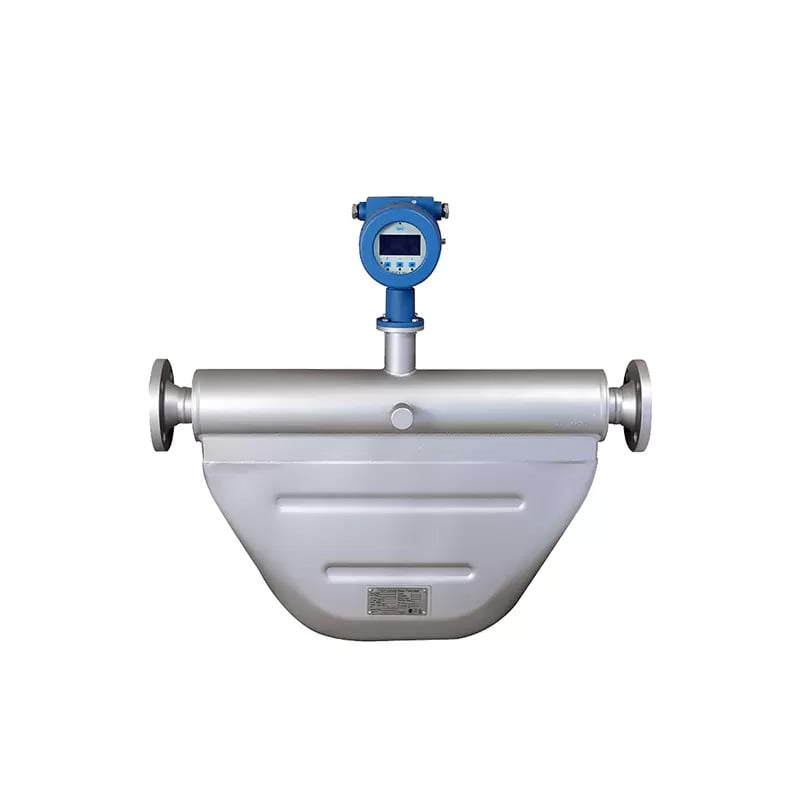
Medidor de caudal másico Coriolis en forma de W (MTD-ACMW)
- Alta precisión de hasta ±0,1 %, Buena fiabilidad
- Buenas prestaciones de estabilidad cero y antiinterferencias
- Sin piezas móviles, no requiere mantenimiento

Caudalímetro másico Coriolis / Controlador MTL20FE
- Diseñado para la medición de gases / líquidos de bajo caudal.
- Alta precisión, buena repetibilidad. Para líquidos, la precisión de medición puede alcanzar ± 0,25%; para gases, la precisión de medición puede alcanzar ± 0,5%.
- Relación de reducción: 50:1 para controlador de caudal másico digital; 100:1 para caudalímetro másico digital.
- Tiempo de respuesta: regulador de caudal másico<0,2s; caudalímetro másico <0,1s
- Controlador PID integrado para regular el caudal.
Caudalímetros másicos térmicos
Principio de funcionamiento: Measures gas mass flow based on the heat dissipation rate as fuel gas passes over a heated sensor.
Ventajas:
- Ideal for measuring low-flow or clean gas fuels
- Provides direct mass flow measurement without pressure or temperature compensation Limitaciones:
- Not suitable for liquids
- Performance can be affected by humidity or particles in the gas
Lo mejor para: Natural gas, propane, and hydrogen flow measurement.

Caudalímetro másico térmico antideflagrante (MT212x-Ex)
- Clase de protección contra explosiones: Ex db IIC T6 Gb / Ex tb IIIC T80°CDb.
- Adecuado para tuberías con diámetros de DN20 a DN1000.
- Relación de reducción ultraancha de 1:2500, el rango de medición es de 0,1 Nm/s a 250 Nm/s.
- Procesamiento de señales totalmente digital, mayor precisión y estabilidad a largo plazo.
- La estructura eléctrica totalmente aislada puede filtrar por completo las perturbaciones de campo.

Medidor / Controlador de caudal másico de gas térmico (MTL20FD)
- Diseñado para la medición de gases de bajo caudal.
- Relación de reducción: 50:1 para controlador de caudal másico digital; 100:1 para caudalímetro másico digital.
- Tiempo de respuesta: regulador de caudal másico<0,2s; caudalímetro másico <0,1s
- Controlador PID integrado para regular el caudal
Caudalímetros de turbina
Principio de funcionamiento: Uses the rotation speed of a turbine blade to determine the volumetric flow rate.
Ventajas:
- Good accuracy at medium to high flow rates
- Compact and cost-effective Limitaciones:
- Sensitive to viscosity changes
- Requires stable, clean fuel
Lo mejor para: Gasoline, kerosene, or aviation fuel under clean conditions.
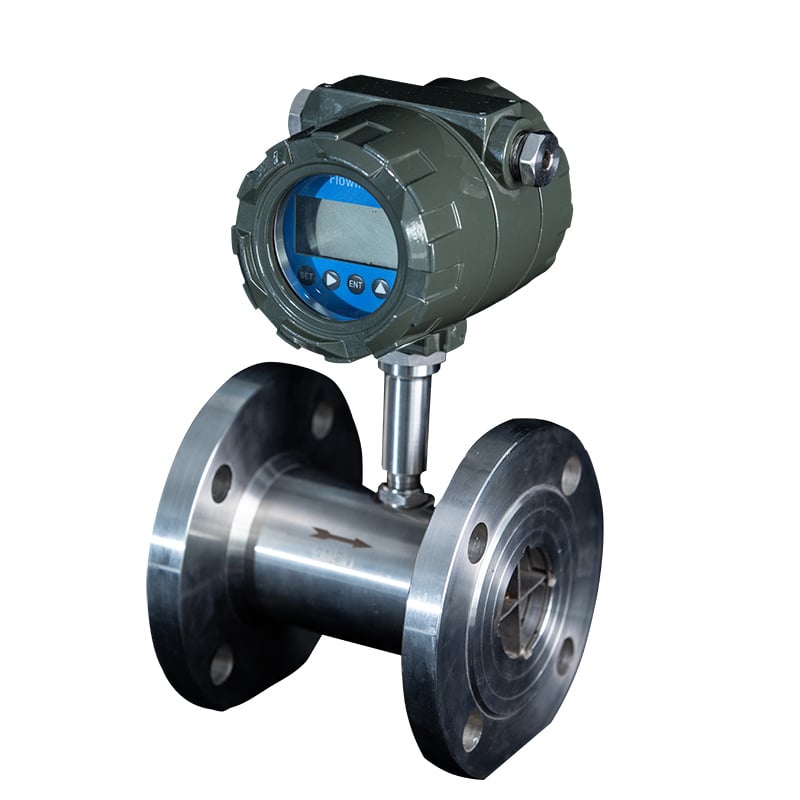
Medidor de flujo de turbina de líquidos de alta precisión (LWGYMT-AJWL)
- Alta precisión de hasta ±0,2 %, con buena repetibilidad.
- Relación de reducción de 1:20.
- Estructura que ahorra espacio con un diámetro interior mínimo de DN0,5.
- Los colores y el aspecto pueden personalizarse según se solicite
Caudalímetros ultrasónicos
Principio de funcionamiento: Measures flow velocity using the time difference between transmitted and received ultrasonic pulses.
Ventajas:
- No moving parts, minimal maintenance
- Suitable for both liquid and gas fuels
- Can be installed non-intrusively (clamp-on type) Limitaciones:
- Accuracy depends on installation and pipe conditions
- Not ideal for very viscous or aerated fuels
Lo mejor para: Clean liquid fuels, pipeline monitoring, and large-diameter flow measurement.
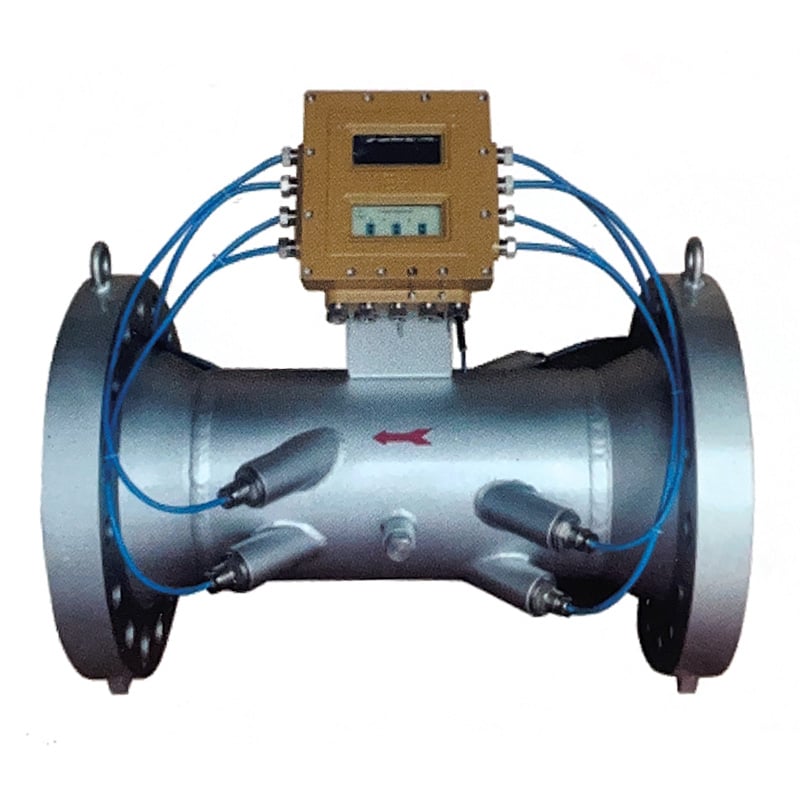
Medidor ultrasónico de flujo de gas de alta precisión (MTS-LYNSB)
- Alta precisión para gas de hasta ±0,5%
- Sin piezas móviles, sin pérdida de presión, sin obstrucciones en la línea
- Sin lubricación ni mantenimiento periódico
- La medición no se ve afectada por las propiedades del gas
- Relación de reducción de 100:1
- Capacidad bidireccional
How to Choose the Right Fuel Flow Meter
Selecting the proper fuel flow meter depends on the type of fuel, flow conditions, accuracy requirements, and installation environment. Below are key factors to consider:
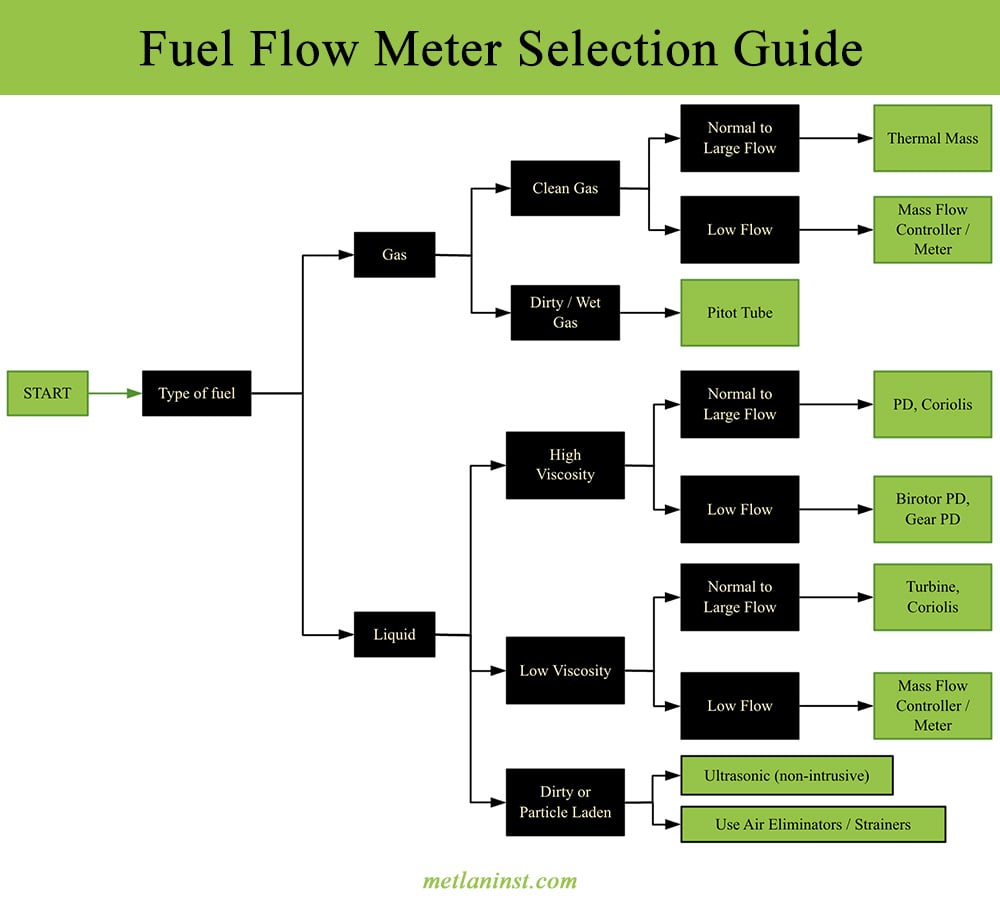
Fuel Type and Properties
Identify whether you are measuring liquid or gas fuel, its viscosity, density, and temperature range.
- For viscous liquids (diesel, oil) → choose Desplazamiento positivo o Coriolis meters.
- For light liquids (gasoline, kerosene) → Turbina o Coriolis meters work well.
- For gas fuels (natural gas, hydrogen) → Masa térmica o Ultrasonidos meters are preferred.
Measurement Range and Accuracy
Define the required flow range and precision level.
- Laboratory and testing setups require ±0.2% or better accuracy (Coriolis, PD).
- Industrial transfer applications may allow ±1% accuracy (Thermal Mass, Turbine).
Pressure and Temperature Conditions
High-pressure or high-temperature systems require robust sensors and materials resistant to corrosion and thermal stress. Stainless steel or specialized alloys are typically used.
Maintenance and Installation
For remote or continuous operations, select meters with bajo mantenimiento y digital output compatibility (e.g., 4–20 mA, RS485, or Modbus).
Clamp-on ultrasonic meters can be ideal when non-intrusive installation is required.
Cost and Lifecycle
Consider total ownership cost, not just the purchase price. A higher initial investment in a Coriolis or PD meter may yield long-term savings through accuracy, reduced downtime, and energy efficiency.
Fuel Flow Meter Selection Guide
| Selection Factor | Key Considerations | Recommended Flow Meter Types | Typical Fuel Examples |
|---|---|---|---|
| Fuel Phase | Determine whether the fuel is liquid o gas. | – Liquid: Positive Displacement, Coriolis, Turbine – Gas: Thermal Mass, Ultrasonic | Liquid fuels: Diesel, Gasoline, Jet Fuel Gas fuels: Natural Gas, Propane, Hydrogen |
| Viscosidad | High-viscosity fuels require meters that handle thick, slow-moving fluids. | – High viscosity: PD, Coriolis – Low viscosity: Turbine, Coriolis | Diesel, Heavy Oil → PD/Coriolis Gasoline, Kerosene → Turbine/Coriolis |
| Accuracy Requirement | Define precision needed for your process (e.g., testing vs. monitoring). | – High accuracy (±0.2%): Coriolis, PD – Medium (±0.5%–1%): Turbine | Engine testing → Coriolis, PD, Fuel transfer → PD/Turbine |
| Cleanliness / Particle Content | Dirty or particle-laden fuels can cause mechanical wear. | – Clean fuels: Turbine, Coriolis – Dirty fuels: Ultrasonic (non-intrusive) | Biodiesel (filtered) → PD Heavy oil with impurities → Ultrasonic |
| Budget / Lifecycle Cost | Consider total cost of ownership (accuracy, maintenance, calibration). | – Low-cost: Turbine – Mid-range: PD – Premium: Coriolis | Cost-sensitive sites → Turbine Long-term precision → Coriolis |
Applications of Fuel Flow Meters
Fuel flow meters are essential in multiple sectors:
- Automotive and Marine Engines: Real-time fuel consumption monitoring and efficiency analysis.
- Aviation: Precise jet fuel measurement for safety and performance.
- Power Generation: Monitoring fuel supply to turbines and boilers.
- Oil & Gas Industry: Custody transfer, blending, and leak detection.
- Laboratory and Research: Calibration, performance testing, and emission studies.
Accurate measurement not only improves operational efficiency but also helps meet environmental and safety regulations.
A caudalímetro de combustible is more than just a measuring device—it is a critical component that ensures energy efficiency, process control, and cost management. Whether dealing with diesel, gasoline, natural gas, or hydrogen, selecting the right flow meter type can significantly impact performance and reliability.

